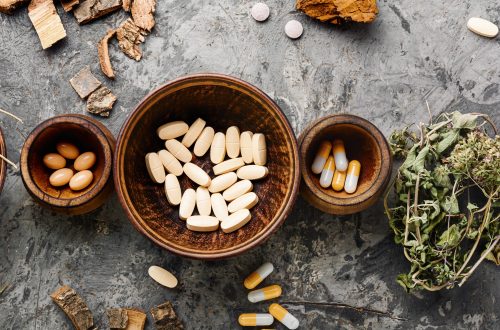
Embracing Nature’s Bounty: Effective Natural Ways to Lower Cholesterol
High cholesterol levels are a common concern that can contribute to various cardiovascular problems, including heart attacks and stroke. While medication, mainly statins, can be prescribed to manage cholesterol, there are several natural approaches that can also help lower cholesterol levels and improve your heart health. In this post, let’s explore effective natural ways to lower our cholesterol and support a healthy lifestyle.
So your Doctor sent you to the lab to get some blood work and now you get the call that your cholesterol is too “high”…
Now What???
First…
How is Cholesterol Measured?
Chances are that your doctor drew some blood work, and it had something that may have been called a “lipid panel” in it. In order for this to be an accurate reading, most times you have to be fasting before it’s drawn. If you haven’t been fasting for this blood test, your results may be falsely high. Tell your doctor about it (it happens), fast, and have it redrawn. The result is it will give you a bunch of abbreviations that you may or may not understand.
Total Cholesterol – Overall number… generally we want this less number less than 200.
HDL– high density lipoproteins or “good” cholesterol
LDL– Low density lipoproteins or “bad” cholesterol
Triglycerides
If your cholesterol numbers are high here are some natural options…
Emphasize a Heart Healthy Diet
“Let food be thy medicine and medicine by thy food.” -Hippocrates
When it comes to naturally lowering your cholesterol levels a nutritious diet plays an extremely vital role. Incorporate the following elements into your eating habits:
- Increase Fiber Intake: Opt for fiber-rich foods such as fruits, vegetables, whole grains, legumes, and nuts. Soluble fiber, in particular, helps reduce cholesterol absorption in the bloodstream.
- Choose Healthy Fats: Replace saturated and trans fats with healthier alternatives like monounsaturated and polyunsaturated fats found in avocados, olive oil, nuts, and seeds.
- Include Omega-3 Fatty Acids: Consume fatty fish like salmon, mackerel, and sardines, which are rich in omega-3 fatty acids. Alternatively, consider adding flaxseeds, chia seeds, or walnuts to your diet.
- Limit Processed Foods: Minimize your intake of processed foods, refined sugars, and unhealthy snacks, as they often contain high levels of saturated and trans fats.
If geographical location, or your palate, doesn’t allow you to incorporate certain foods you can always order It fresh (readers get a pretty awesome discount on Thrive Market, click the image below to check it out), or supplement…
Regular Exercise and Physical Activity
Engaging in regular physical activity has numerous benefits for heart health, including the promotion of healthy cholesterol levels. Aim for at least 150 minutes of moderate aerobic exercise or 75 minutes of vigorous activity each week. Activities like brisk walking, jogging, swimming, cycling, and dancing can be fun and effective in reducing cholesterol levels and improving overall cardiovascular fitness.
For other surprising benefits of exercise, click here.

Maintain a Healthy Weight
Maintaining a healthy weight is another natural way to manage those cholesterol levels. Excess body weight, particularly around the waist, can contribute to higher cholesterol levels and an increased risk of heart disease. Studies have shown a direction correlation between your waist to hip ration and death from cardiovascular causes. Focus on maintaining a balanced diet and engaging in regular exercise to achieve and sustain a healthy weight.
Incorporate Plant Sterols and Stanols.
What the heck are those?! Plant sterols and stanols are compounds found naturally in fruits, vegetables, legumes, and whole grains. They help lower cholesterol levels by reducing the absorption of dietary cholesterol in the intestines. Kind of a fun trick that nature can do. Consider incorporating foods fortified with plant sterols and stanols, such as certain margarines and yogurts, into your diet.

Consume Heart Healthy Herbs and Spices
Several herbs and spices have been shown to have cholesterol-lowering properties. Try adding these into your cooking or consume them as herbal teas:
- Garlic: Garlic contains allicin, a compound that may help lower cholesterol levels and reduce the risk of heart disease.
- Turmeric: Curcumin, the active component in turmeric, has been linked to improved cholesterol levels and reduced inflammation in the body.
- Ginger: Ginger may help lower total cholesterol and triglyceride levels, contributing to heart health.
Limit Alcohol Consumption and Quit Smoking
Excessive alcohol consumption can contribute to higher cholesterol levels and other heart-related issues. Limit alcohol intake to moderate levels or abstain completely. Smoking is also detrimental to heart health and can lower levels of good cholesterol (HDL). Quitting smoking will not only improve cholesterol levels but also benefit overall cardiovascular health. Let’s face it, there really is nothing “good” about smoking.
Manage Stress Levels
Believe it or not, chronic stress can affect cholesterol levels and heart health. Stress encourages the body to produce more energy in the form of metabolic fuels, which cause the liver to produce and secrete more of the bad cholesterol, LDL.
Stress-management techniques such as meditation, deep breathing exercises, yoga, or engaging in hobbies and activities that bring you joy. These practices can help reduce stress and promote better overall well-being. So grab your favorite meditation pillow, go for that walk, take time to play with your kids, and go on that vacation. It’s for your “health” after all.

Lowering cholesterol levels naturally is very possible through a combination of healthy lifestyle choices, including a balanced diet, regular exercise, maintaining a healthy weight, and managing stress levels. It’s always a good idea to work with your PCP/doctor in your journey. Remember that each person is different so be patient with yourself and see how these options work for you.
Disclaimer: This blog post is for informational purposes only and should not be considered medical advice.
*Hey there! Just a heads up, some of the links I share in my articles might be affiliate links, which means I might earn a small commission if you decide to make a purchase through them.*









